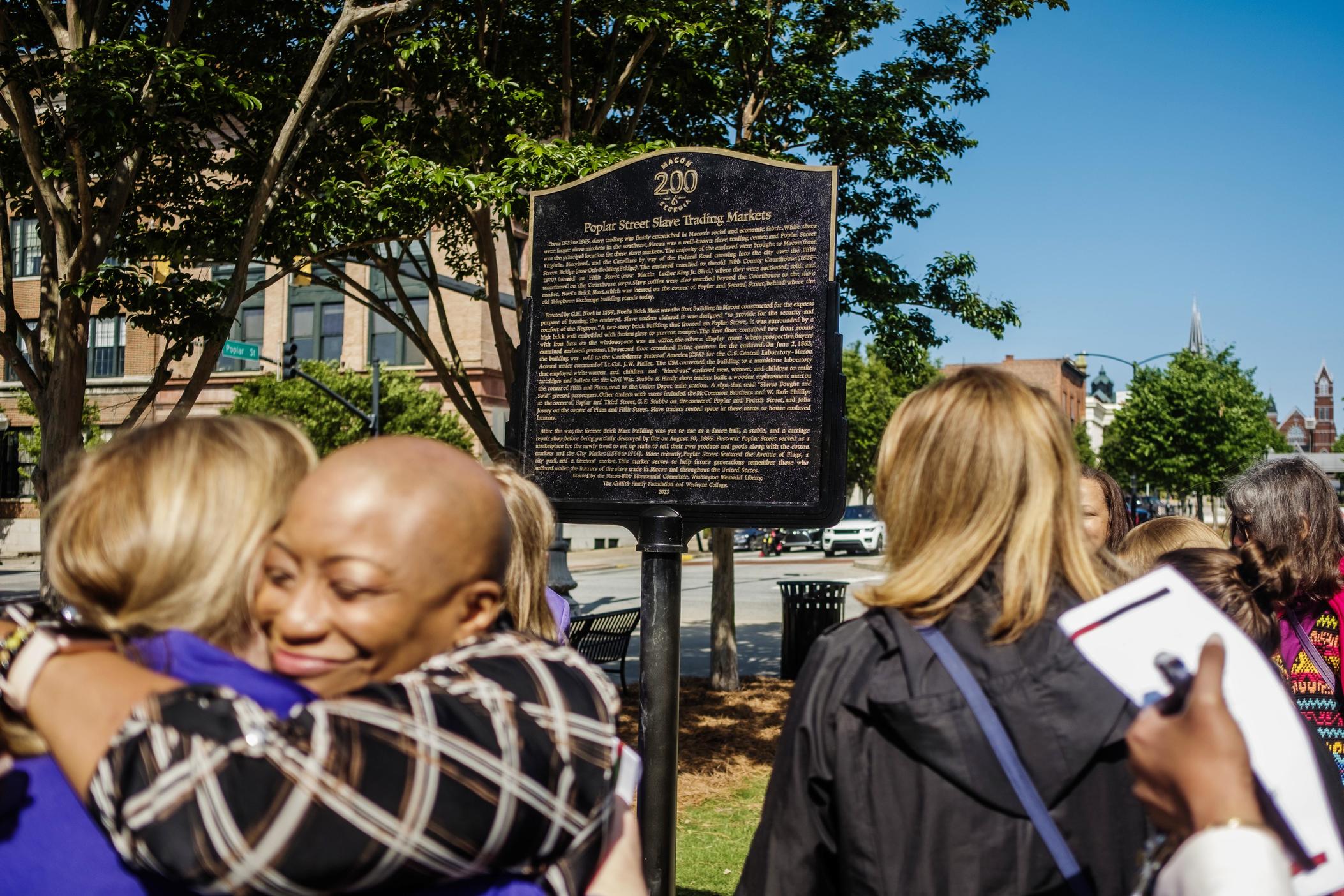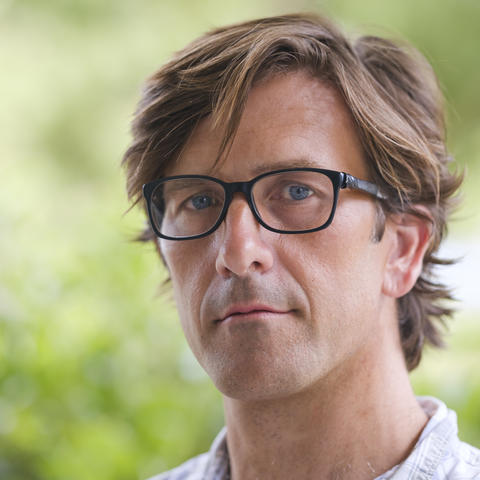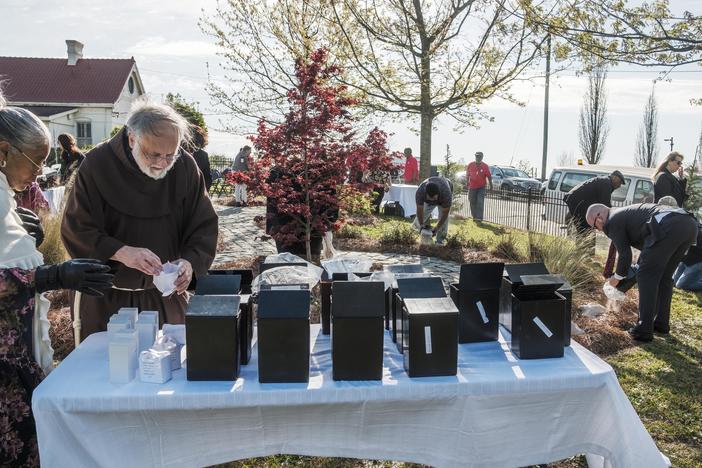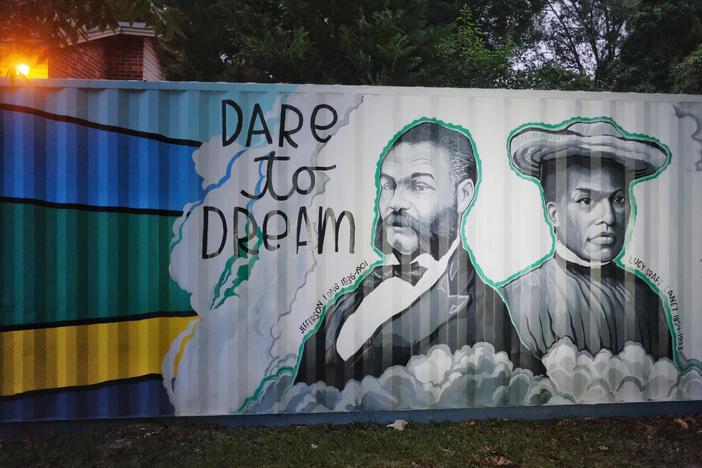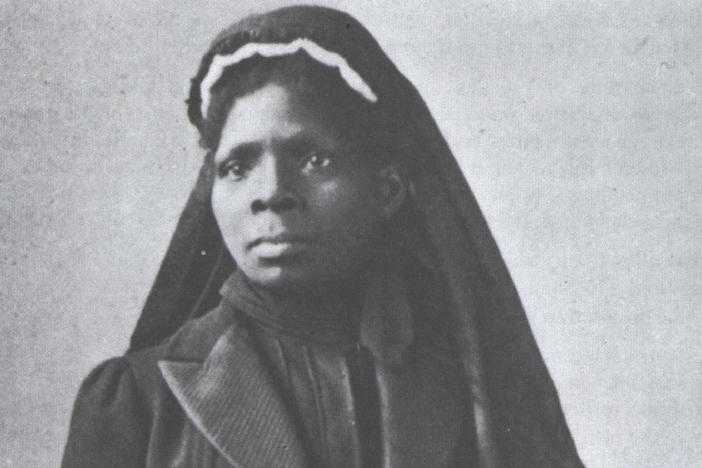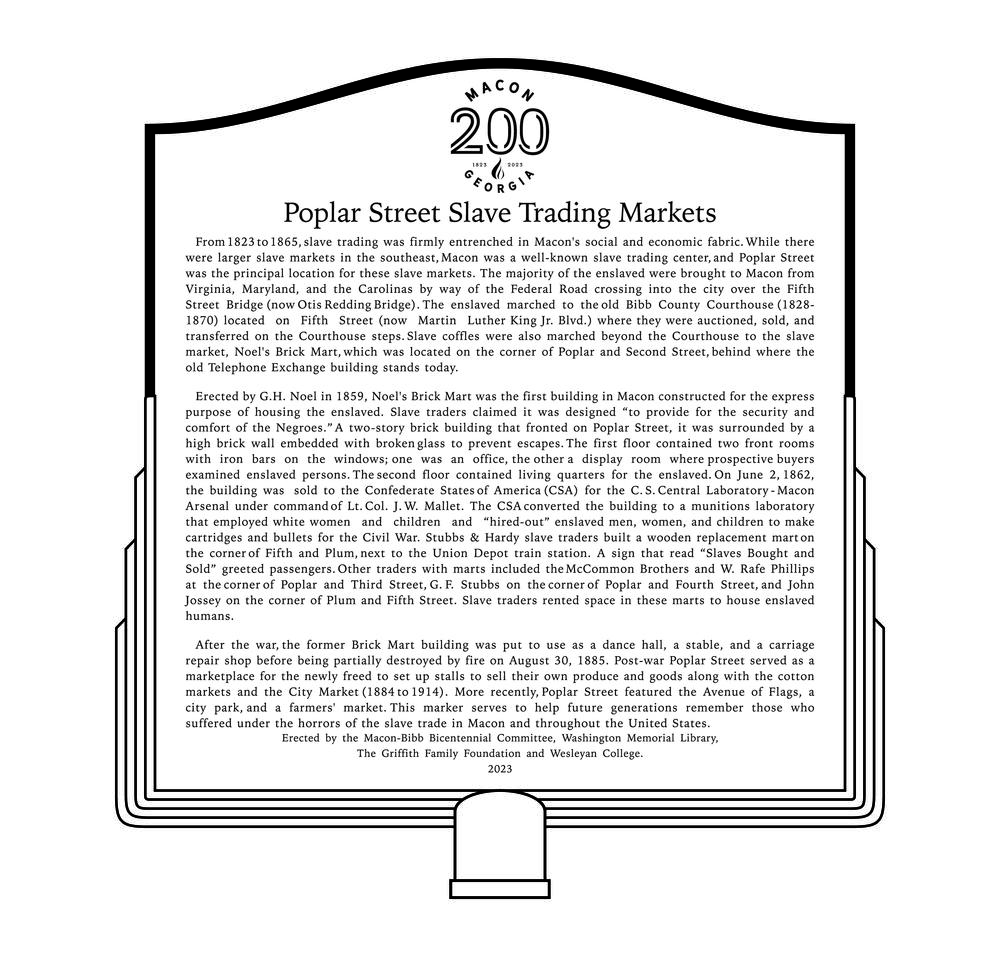
Section Branding
Header Content
'A long time coming': How Macon is preserving Black history in bronze and QR codes, one by one
Primary Content
LISTEN: New historical markers unveiled Monday in Macon are the first to present the city’s Black history solely for its own sake. GPB's Grant Blankenship reports.

New historical markers unveiled Monday in Macon are the first to present the city’s Black history solely for its own sake.
Up on Cotton Avenue, one marker describes the street’s history as Macon’s Black Wall Street, home to the city’s first Black millionaire, Charles Douglass who ran the Douglass Theatre in the 1930s. Both Thurgood Marshall and Martin Luther King Jr. once spoke on Cotton Avenue.
On Poplar Street, only a block away from where, until a few years ago, a Confederate statue stood, a second marker tells the story of the brick-and-mortar market where the enslaved were browsed in a showroom and a wall topped with glass shards prevented their escape.
A third marker yet to be placed will tell how the old county courthouse was also a major slave market.
Macon native and longtime librarian Muriel McDowell-Jackson said she carried the histories in her mind for years before being tapped by the city’s Bicentennial Committee to write them down, finally, in bronze.
Across town is her previous success, achieved through the city’s Sesquicentennial Committee: a marker to William and Ellen Craft, the couple who wrote the 1860 book Running a Thousand Miles for Freedom about their escape from slavery which involved Ellen acting out the role of a young white enslaver and her husband the role of the enslaved.
People she knew back then were incredulous she was involved with the sesquicentennial.
“You're celebrating what?” she recalled them asking. “You know, the 150th anniversary of the Civil War.”
McDowell-Jackson saw the opportunity, though, and took it. How else, she asked, was she going to place a story of Black self-emancipation in front of what is still called the Robert E. Lee building?
“If you're not at the table, like Shirley Chisholm, bring a chair.”
This year, McDowell-Jackson’s spotlight on Black history was not shoehorned in.
“You meet the people, the descendants of some of these people, and they kind of swell up with pride that somebody else knows what their ancestor did," she said, "or in this case, what they overcame."
During Monday’s ceremony for the Poplar Street marker’s unveiling, Macon business leader Alex Habersham placed the markers squarely in the context of the city’s bicentennial celebration which began last year.
“This is not just a meaningless gesture," Habersham said. "The bicentennial mission includes acknowledging our past. Telling the truth. Telling the truth about the good and the bad of it.”
In addition to the bronze markers, the city’s bicentennial commission is placing a series of smaller signs with QR codes at other sites in Macon to provide smartphone access to more of the city’s Black history.
After the April 22 ceremony, Akasa Cade, who just moved to Macon from Atlanta, went straight to the marker to shoot video of it for her Black history-themed Youtube channel.
“I'm hoping it helps people empathize with Black history and what happened and how it affects us to this day as well,” Cade said. “It may be shocking to some people, but I think it's important to try to look at it with an open mind and don't shun it away just because it's bad.”
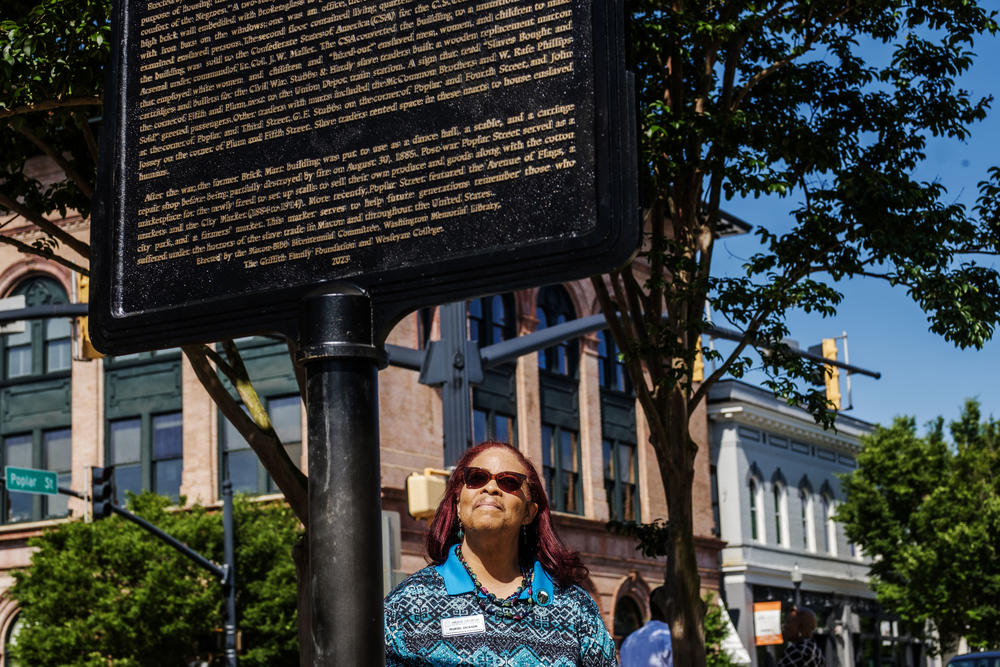
Remco and Colinda Pirats of the Netherlands just happened to walk into the scene around the new marker during their Macon stop in a larger tour of the South.
“I thought it was another part of the southern part of the U.S. where [slavery] was happening,” Remco Pirats said. “I thought it was more like, Nashville. Mississippi. But this part of Georgia, I didn't know about it.”
For research librarian Muriel McDowell-Jackson the new markers are a personal victory.
“I just said, ‘It's a long time coming.’”
Secondary Content
Bottom Content

